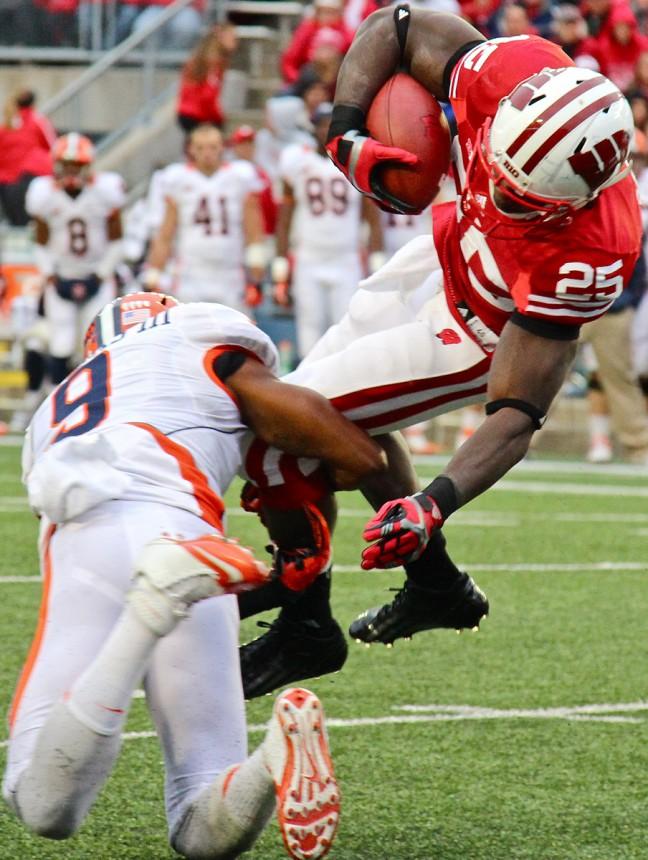While many University of Wisconsin student-athletes said they understood they were forfeiting a large amount of time and the chance to take a job by signing on to play Division I sports, administrators continue to debate whether they should be compensated.
Dale Bjorling, chair of the University of Wisconsin Athletic Board, said player compensation was not approved in their last meeting because of the National Collegiate Athletic Association’s concern that smaller schools and conferences would not be able to provide compensation for student-athletes.
It would be possible for some schools to provide student-athletes with this support if the institution chose but it would not be mandated, he said.
Bjorling said he thought the Athletic Department felt it was in a good position to provide support to athletes.
Financial compensation for student-athletes is an idea that has been around for a few years, according to Bjorling. In the past, the Big Ten Conference has been supportive of student-athletes receiving a $2,000 expense allowance, as competing at the Division I level while balancing academics is extremely difficult, he said.
“Student-athletes are in a very difficult position. There is a gap between scholarship and personal financial needs,” Bjorling said. “Although no one is sure what the right amount of compensation is, this would be a step in the right direction.”
Abbie Weigel, a member of the women’s track and field team, said being a student-athlete was a lifestyle she chose. She said when she committed her time to track and field, she went in knowing she would receive no financial compensation
Weigel said she made many sacrifices by being a student-athlete, but it was “part of the package.”
The forms of compensation athletes currently receive, such as scholarships, tutoring and academic support, are enough, she said. Weigel also said she is happy to be competing and attending UW.
During a typical week, Mark Nitka, a member of the men’s rowing team, said he spends about 20 to 25 hours a week dedicated to his sport, even in the off-season. Coaches may only get 20 hours a week with an athlete in-season, but meetings, out-of-practice workouts and conditioning also have to be factored in, Nitka said.
Due to the large time commitment, Bjorling said it was unrealistic to expect student-athletes to have jobs.
“This does not leave time for a job. Options for obtaining funding for their needs are then left to other sources,” Bjorling said.
Taylor Zimprich, a member of the women’s cross-country and track teams, said fully committing to her sport did not allow for them to get involved as most other students do in activities.
Zimprich said when applying to jobs or graduate school, it is “very impressive” to be a student-athlete, as employers generally understand that it is a major commitment.
Emma Paulson, a women’s swimming and diving team member, said spending time wisely was important. Because student-athletes do not have any income, they need to balance their funds and be smart, Paulson said.
The timing and the process of the NCAA decision about allowing compensation for student-athletes is hard to predict due to many complications and other issues, Bjorling said.




















